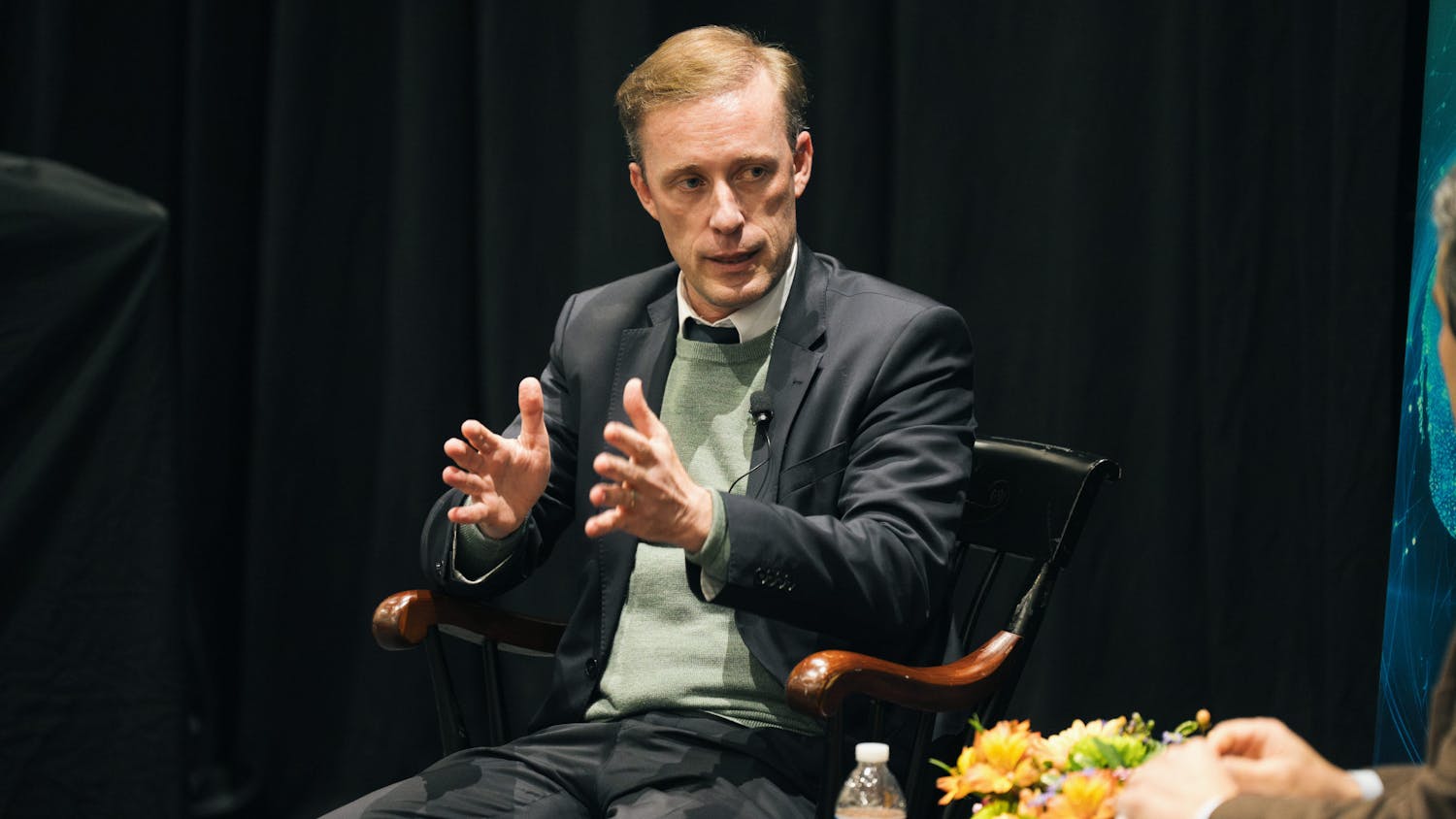In Lesotho, an African nation with a population of approximately 2 million, more than 700,000 citizens are infected with HIV, Phuoc Le '98, M.D., a resident in Global Health Equity, Pediatrics and Internal Medicine at Harvard Medical School, said in a speech on Tuesday. Yet the number of trained physicians in all of Lesotho is approximately equal to the number of emergency physicians at Dartmouth-Hitchcock Medical Center, he said.
Le described his experiences at the Nohana Clinic in Lesotho and his work with Partners in Health, a global health non-profit organization that seeks to address the health-related inequalities that plague many developing nations. As a member of Partners in Health, Le has traveled the world to provide medical care to developing nations and to combat the disproportionate spread of health care worldwide.
"You want to believe that the places in the world with disproportionately high HIV rates -- that's where all the doctors should be," Le said.
Unfortunately the opposite is true."
Since the Nohana Clinic was founded, Partners in Health has commissioned or begun the construction of several new clinics in Lesotho. Yet despite the successes that the organization has seen in the region, there is still much work to be done, Le said.
"With each happy story, as uplifting as it is, as rejuvenating as it is, there are so many stories that are tragic, that make us feel like we've failed these people, that they've had their human rights violated," Le said. "This is why we work hard, this is why we use the human rights model, because these are stories we should not have to tell."
According to Le, the dire situation in Lesotho has been exacerbated by many trained physicians leaving the country to work in South Africa, which surrounds Lesotho.
Partners in Health, however, has been successful in recruiting local community members to work at the Nohana Clinic. Through private donations and funding from Harvard Medical School, the Clinic has experienced dramatic growth.
Le noted that it is important to keep projects as local as possible, adding that currently 95 percent of the Clinic's staff is made up of community members.
"Most of our budget goes to community health workers," Le said.
As a non-profit, Partners in Health is careful to work very closely with its host governments, he added.
"We almost never do anything alone because we know we are just an organization and we know that the basic human rights to health, housing, and water rest on the shoulders of the government," Le said. "We hope that one day we can leave and the government can easily take over the project."
Le's lecture was funded by the John Sloan Dickey Center for International Understanding and is related to the ongoing mission of Dickey's Global Health Initiative, according to anthropology professor Sienna Craig.



